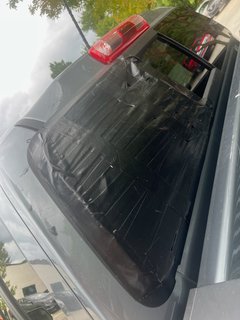The replacement of auto glass is often seen as a straightforward task. However, its environmental implications are more complex than they appear. In Sanford, North Carolina, a city that has witnessed significant growth and development over the years, understanding these environmental impacts becomes crucial for both consumers and service providers. Whether it’s windshield replacement or auto glass repair, every decision carries weight in terms of sustainability and ecological responsibility.
The materials involved in auto glass
To grasp the environmental impact of auto glass replacements, one must first understand the materials used in manufacturing vehicle glass. Most automotive glass is made from laminated safety glass or tempered glass. Laminated glass consists of layers of polyvinyl butyral (PVB) sandwiched between two sheets of glass. This combination provides safety by preventing shattering upon impact. Tempered glass, on the other hand, is made through a heating and cooling process that increases its strength.
Both types of glass have their own environmental footprints. The production process involves mining raw materials like silica sand, soda ash, and limestone. These processes can be resource-intensive and lead to habitat destruction if not managed responsibly. Furthermore, the energy required to melt and mold these materials contributes to greenhouse gas emissions.
Once a vehicle's windshield or side window is replaced, what happens to the old glass? Typically, it is discarded as waste unless proper recycling measures are taken. In many cases, damaged auto glass ends up in landfills where it can take thousands of years to decompose.
Recycling options for auto glass
Fortunately, there are options for recycling auto glass that can mitigate its environmental impact. Recycling programs vary by location; however, many regions have begun implementing systems that facilitate the recovery of old windshields and windows.
In Sanford, local auto repair shops may collaborate with recycling facilities to ensure that discarded auto glass does not contribute further to landfill waste. Recycled automotive glass can be repurposed into new products such as fiberglass insulation or even new automotive parts. This circular economy approach not only conserves resources but also reduces energy consumption associated with producing new materials.
It's essential for consumers to inquire about recycling practices when considering windshield replacement or repairs. A responsible service provider should be willing to discuss their methods for handling old auto glass and ensuring minimal environmental impact.
The role of mobile services
Mobile auto glass services are becoming increasingly popular due to their convenience. In Sanford, many residents opt for mobile auto glass repair because it saves time and effort while providing quality service at their location of choice—be it home or work.
However, mobile services also introduce unique environmental considerations. For instance, traveling long distances to reach customers can increase fuel consumption and carbon emissions compared to stationary shops serving clients locally. That said, some mobile services employ eco-friendly practices by optimizing routes or using fuel-efficient vehicles.
Consumers should consider supporting businesses with sustainable practices when choosing mobile auto glass services in Sanford. Look for companies that prioritize reducing their carbon footprint through efficient operations while delivering high-quality repairs.
Understanding the lifecycle impacts
The lifecycle impact of any product encompasses its entire journey—from raw material extraction through manufacturing and use until disposal or recycling occurs. With auto glass replacements, each phase contributes uniquely to environmental concerns:
Raw Material Extraction: Mining for silica sand involves significant land disturbance. Manufacturing: Energy-intensive processes release greenhouse gases. Transportation: Shipping materials incurs additional emissions. Installation: Professional installations require labor hours and travel. End-of-Life Disposal: Without recycling efforts, discarded pieces contribute to landfill overflow.Understanding this lifecycle allows consumers in Sanford to make informed choices about their vehicle maintenance needs while being mindful of their ecological footprint.
Addressing common misconceptions
There are several misconceptions surrounding the environmental impact of windshield replacements and auto glass quote sanford repairs that warrant clarification:

- Recycling is always available: While some areas offer robust recycling programs for automotive glass, others may lack adequate infrastructure. All repaired windshields are equal: The quality of repairs varies significantly among service providers; subpar repairs might necessitate future replacements sooner than expected. Cost vs Value: Cheaper options may neglect sustainable practices in favor of lower prices—considering long-term impacts can yield better value overall.
Educating consumers about these points helps promote more responsible decisions when dealing with auto glass issues.
Future trends in sustainability
The movement towards sustainability within industries continues to grow stronger each year as awareness increases among consumers and businesses alike. The auto industry is no exception; innovations aimed at minimizing ecological impacts are emerging regularly.
For example, manufacturers are exploring alternative materials for automotive glazing that reduce reliance on traditional raw inputs while enhancing recyclability after use. Additionally, advancements in adhesive technologies mean less PVB waste during windshield installations—a promising development for both efficiency and sustainability.
As local businesses adapt to these trends by adopting greener practices—such as sourcing recycled materials or utilizing energy-efficient technologies—they contribute positively toward mitigating climate change effects resulting from traditional manufacturing processes.
Community involvement
Community engagement is vital when discussing environmentally responsible practices related to auto maintenance in Sanford. Local initiatives focused on sustainability often encourage residents to participate actively through workshops or informational sessions regarding eco-friendly vehicle care options.
Such events provide valuable insights into how small actions—like responsibly disposing of old windshields—can lead toward significant positive changes within communities over time.
Encouraging partnerships among local businesses dedicated to sustainable practices fosters a culture prioritizing environmental stewardship across various sectors beyond just automotive repair alone.
Conclusion
Navigating the complexities surrounding the environmental impact of auto glass replacements requires diligence from both consumers and service providers alike in Sanford, NC. By understanding material sourcing implications through various lifecycle stages—from extraction through disposal—one gains insight into making choices aligned with sustainable values without sacrificing quality service delivery standards along the way.
Investing time upfront researching reputable companies committed not only enhances individual experiences but collectively builds momentum toward creating greener communities capable addressing today's pressing challenges head-on sustainably moving forward together!